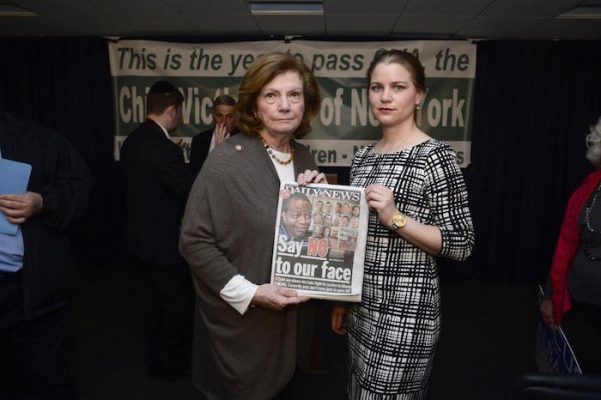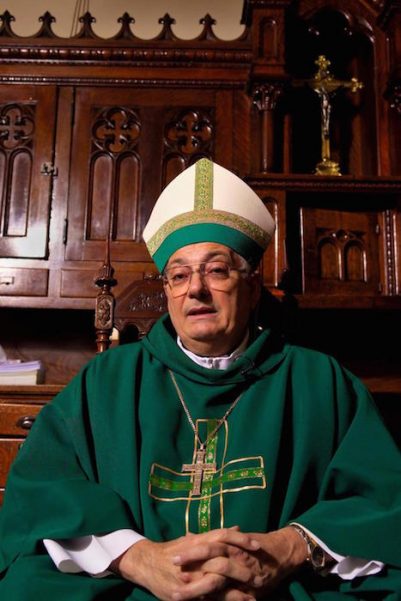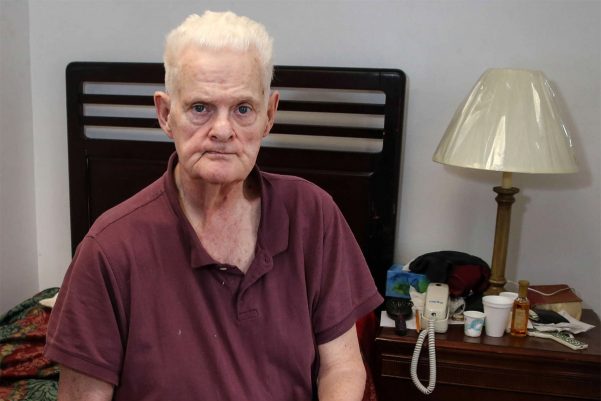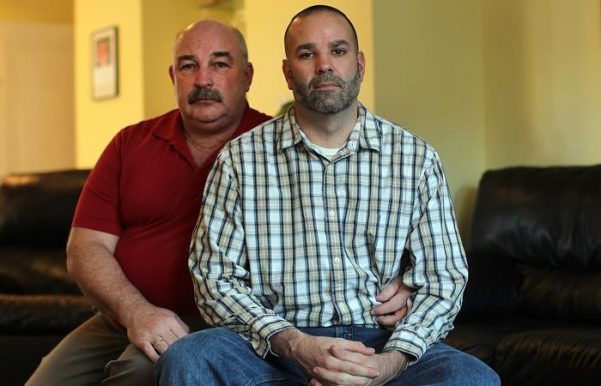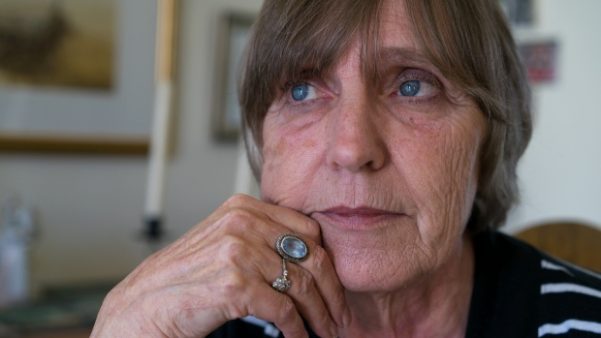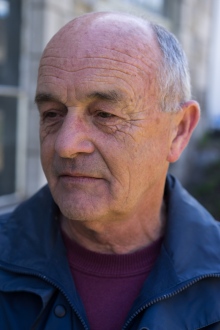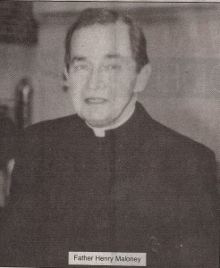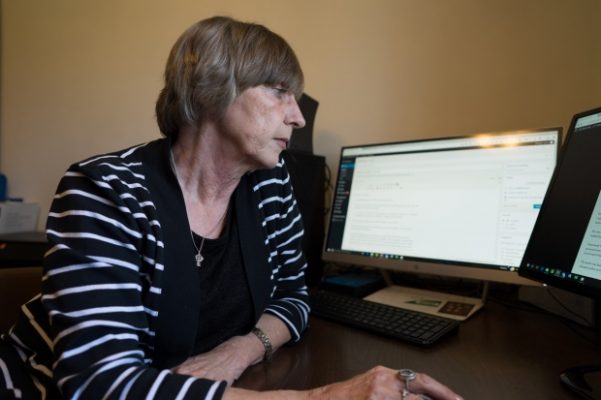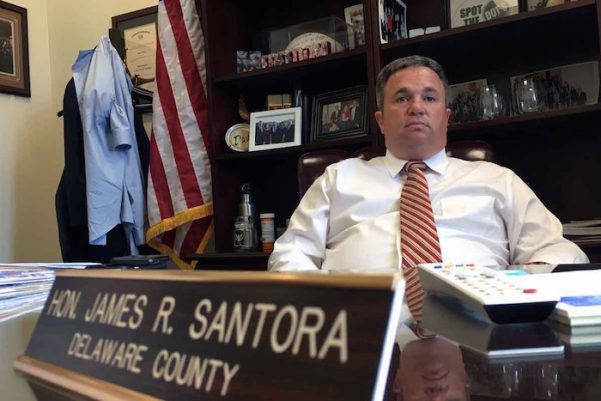
HARRISBURG – One lawmaker called it “electioneering.” Another grew emotional as she recounted being snubbed by a priest. A third penned a Facebook screed that became the buzz of the House of Representatives.
Legislators expressed outrage this week after they said they had been named by priests at Mass, in church bulletins or in some other way rebuked by the Catholic Church for supporting a bill that would let child sex-abuse victims sue individuals and private institutions decades after the abuse occurred.
Rep. Nick Miccarelli, a devout Catholic from Delaware County, said he was stunned on Sunday to see his name printed alongside what he called “lies,” and “distortions” in the weekly bulletin at his Eddystone parish. By his count, at least a dozen other House members reported having been singled out by the church or its advocates in recent days.
“A lot of the members would tell you responses have been nothing short of threats to claims of betraying their faith,” Miccarelli, a Republican first elected in 2008, said the day after his Facebook post about the campaign quickly made the rounds in Harrisburg.
Several of the legislators, each of whom faces re-election this fall, said they were targeted for retribution as Philadelphia Archbishop Charles Chaput leads a push to stop the bill from becoming law.
The measure would give victims until age 50 – instead of 30, as the current law allows – to sue their abusers or the institutions that employed or supervised them. It won near unanimity in the House this spring, but faces an uncertain fate in the Senate.
The church, among the biggest opponents, has warned that the bill’s retroactivity could lead to a wave of lawsuits and unfairly cripple parishes and schools that deserve no blame for sexual attacks that happened decades ago.
Ken Gavin, a spokesman for Chaput, confirmed that archdiocesan pastors this weekend in “many instances” shared with worshipers how certain lawmakers had voted on the bill.
“The bill is public and the voting records are public,” Gavin said in an email Wednesday. “There’s nothing wrong with sharing that information. Obviously, parishioners are very concerned about this legislation. For those constituents to contact elected officials to voice such concern is a very normal thing.”
The push from the pews was not new or unexpected from Chaput. He used the same approach as bishop of Denver to help defeat a similar bill a decade ago. Other dioceses subsequently replicated the approach when statute of limitations reform took hold in their state capitals.
But some on the receiving end said they believed the effort went beyond simply educating the congregation.
The House bill passed overwhelmingly – all but 15 of 195 members voted in favor of it.
Still, Rep. James R. Santora, another Delaware County Republican, said even stalwart church supporters like him were finding themselves under attack and unhappy about it.
“I believe everyone that voted for the bill is being targeted,” he said, including himself in that list but declining to say how he had been targeted.
To Santora, the naming of lawmakers inside churches and in parish bulletins smacked of “electioneering.” He questioned the propriety of the church telling worshipers, as he saw it, that they were not worthy of votes come November.
It also bothered Santora that, to the church, it made no difference that he had helped secure millions of public dollars to help the archdiocese finance the visit of Pope Francis to Philadelphia. Or that his late mother worked for the archdiocese. Or that his children attend Catholic school.
“We’re constantly advocating for the church,” Santora said in an interview, “and now we’re the enemy.”
At Mass Saturday and Sunday at St. Dorothy’s in Drexel Hill, the pastor did not name Santora, he said, but did read a letter from Chaput urging parishioners to contact the Senate Judiciary Committee.
After that, calls and emails began flowing in, including from a major church donor who asked Santora to explain why he had supported the bill.
Santora said he did so because as a Catholic he felt it was the moral thing to do.
“I had a choice,” he said. “Do I choose victims, or do I choose the rapists or the abusers? I chose the victims.”
In an interview Tuesday, Rep. Martina White of Northeast Philadelphia was visibly moved as she described hearing a few days ago she would be no longer welcome at some constituent events in her district. She said a priest told her aide the reason was White’s support in April of House Bill 1947.
“When you think of the Catholic Church, you think of acceptance and forgiveness and a community that’s available to you,” said White, a first-term Republican who belongs to St. Christopher’s in Somerton and attended 12 years of Catholic school.
“Being dis-invited,” she said, choking back tears, “you feel cut off.”
A letter on the issue distributed to St. Christopher’s parishioners over the weekend didn’t identify White, she said, but it did name Sen. John Sabatina, a Democrat from Northeast Philadelphia. (He did not respond to request for comment.)
Another legislator said to have been shaken after hearing his parish priest call him out by name at Mass was Rep. Thomas Murt of Montgomery County, according to Miccarelli, who said he discussed it with Murt. A Republican and Iraq war vet, Murt did not respond to a request seeking an interview.
In recent letters distributed to worshipers and through Catholic schools, Chaput and others have expressed many of the same concerns that, when brought to the table in Colorado, helped defeat a change to the civil statute of limitations there.
They say the bill is unconstitutional because it allows retroactive filing of civil claims; is selective because the retroactivity does not apply uniformly to public schools and state institutions; and could bankrupt schools and parishes by allowing a flood of lawsuits for clergy abuse.
Gavin also noted that the archdiocese had taken action in recent years to help victims of clergy abuse, dedicating more than $13 million since 2002 “to provide victim assistance to individuals and families, including counseling, providing medication, eliminating barriers to travel and childcare, and providing vocational assistance as well as other forms of support.”
Senate Judiciary Committee Chairman Stewart Greenleaf (R., Montgomery) has taken no position on the bill, committing only to hold a hearing Monday on its constitutionality.
After enduring what he called “bully tactics,” Miccarelli went on Facebook Monday night and excoriated his church, St. Rose of Lima, for singling him out in what he said was an inaccurate summary of the bill. That passage in the church bulletin read:
JUST SO YOU ARE AWARE – State Representative Miccarelli voted in favor of House Bill 1947 which states that private institutions can be sued as far as 40 years ago for millions of dollars, while public institutions may not be sued for any crimes committed in the past.
Supporters point out that the bill would not prevent people from suing public institutions for child sexual abuse on the grounds of gross negligence.
On Tuesday, Miccarelli distributed copies of the church bulletin page to members on the House floor and began to hear stories of similar campaigns. Demand was so strong for the copies, he said, he had to make more.
Despite the pressure, he, like other legislators, said he would not change his stance on the bill.
Said Miccarelli: “I would much rather be chastised from the altar, than to be damned for not allowing justice to be done.”
Complete Article HERE!

